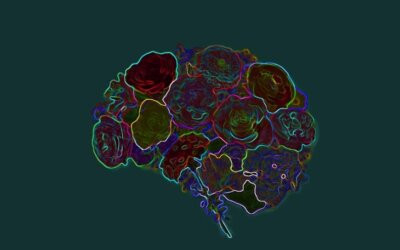At Scattergram, we use our own unique therapy modality called ACCEPT. The ACCEPT modality is based on an understanding of the neurobiology and social experience of neurodivergence. Through a neurodiversity-affirming lens, we combine ACCEPT with traditional therapy modalities such as the ones listed below.
We will collaborate with you to increase your understanding of your neurodivergent operating system (or that of your loved one), build skills in cross-neurotype communication (that doesn’t involve masking), and experience deep, authentic connection. These three pillars form the foundation of the ACCEPT modality.
All Scattergram team members are trained in the A.C.C.E.P.T. Program™ and use modified Dialectical Behaviour Therapy (DBT), Cognitive Behavioural Therapy (CBT), Mindfulness, Trauma-Informed, Intersectional, LGBTQ2SI+-Affirming, and Strengths-Based approaches, and, of course, the ACCEPT Modality. And each therapist also has their own skills, professional expertise, and experience, which you can find on their bio page.
Types of Therapy and Modalities
ACT - Acceptance and Commitment Therapy
“Acceptance and commitment therapy (ACT) is an action-oriented approach to psychotherapy that stems from traditional behavior therapy and cognitive behavioral therapy. Clients learn to stop avoiding, denying, and struggling with their inner emotions and, instead, accept that these deeper feelings are appropriate responses to certain situations that should not prevent them from moving forward in their lives. With this understanding, clients begin to accept their hardships and commit to making necessary changes in their behavior, regardless of what is going on in their lives and how they feel about it.”
Our therapists using it: Michael, Rebecca
Reference
(Opens in a New Window)
Bonny Method of Guided Imagery and Music
The Bonny Method of Guided Imagery and Music (GIM) is a music-centered, transpersonal, and existential therapy tailored to foster overall well-being. This therapeutic approach uses carefully selected classical music sequences to stimulate profound imagery journeys, providing a unique avenue for neurodivergent clients to explore and integrate their mental, emotional, physical, and spiritual selves. Therapists trained in this method are skilled in creating a safe and nurturing environment using empathy and understanding to guide clients through their imagery experiences.
By engaging with the Bonny Method of Guided Imagery and Music, neurodivergent clients can achieve a greater integration of their cognitive, emotional, and spiritual dimensions, leading to improved mental health and overall well-being. It offers a sensory-rich modality that aligns with unique ways of experiencing, allowing for the processing of complex emotions and the enhancement of self-awareness.
Our therapists using it: Rebecca
CBT - Cognitive Behavioral Therapy
“Cognitive behavioral therapy (CBT) is a short-term form of psychotherapy based on the idea that the way someone thinks and feels affects the way he or she behaves. CBT aims to help clients resolve present-day challenges like depression or anxiety, relationship problems, anger issues, stress, or other common concerns that negatively affect mental health and quality of life.”
Our therapists using it: ALL
Reference
(Opens in a New Window)
CFT - Compassion-Focused Therapy
“Compassion-focused therapy (CFT) is a therapeutic approach that aims to help those who struggle with shame and self-criticism, often resulting from early experiences of abuse or neglect. CFT teaches clients to cultivate the skills of self-compassion and other-oriented compassion, which are thought to help regulate mood and lead to feelings of safety, self-acceptance, and comfort. The technique is similar to mindfulness-based cognitive therapy in that it also…”
Our therapists using it: ALL
Reference
(Opens in a New Window)
CPT - Cognitive Processing Therapy
“Cognitive processing therapy (CPT) is a specific type of cognitive-behavioral therapy found to be effective for treating post-traumatic stress disorder (PTSD) in people who have experienced violence, abuse, natural disasters, or other traumatic events.”
Our therapists using it: Harsha
Reference
(Opens in a New Window)
CRT - Cognitive Rehabilitation Therapy
Cognitive rehabilitation therapy is a personalized approach that uses evidence-based interventions to help people with cognitive impairment restore or compensate for cognitive deficits. CRT can be used to treat cognitive problems that arise after COVID or a brain injury or illness, such as those caused by stroke or traumatic brain injury (TBI).
DBT - Dialectical Behavior Therapy
“Dialectical behavior therapy (DBT) is a structured program of psychotherapy with a strong educational component designed to provide skills for managing intense emotions and negotiating social relationships. Originally developed to curb the self-destructive impulses of chronic suicidal patients, it is also the treatment of choice for borderline personality disorder, emotion dysregulation, and a growing array of psychiatric conditions.”
Our therapists using it: ALL
Reference
(Opens in a New Window)
EFT - Emotion-Focused Therapy
“Emotion-focused therapy (EFT) can be defined as the practice of therapy informed by an understanding of the role of emotion in psychotherapeutic change. EFT is founded on a close and careful analysis of the meanings and contributions of emotion to human experience and change in psychotherapy. This focus leads therapist and client toward strategies that promotes the awareness, acceptance, expression, utilization, regulation, and transformation of emotion as well as corrective emotional experience with the therapist. The goals of EFT are strengthening the self, regulating affect, and creating new meaning.” American Psychological Association
Our therapists using it: Robyn
Humanistic Therapy
“Humanistic therapy, also known as humanism, is a form of talk therapy that focuses on a person’s individual nature, rather than assuming that groups of people with similar characteristics have the same concerns. Humanistic therapists aim to consider the whole person, especially their positive characteristics and potential for growth, not only from their professional viewpoint but from a client’s own personal sense of their behavior. The emphasis in sessions is on a person’s positive traits and behaviors and developing their ability to use their instincts to find wisdom, growth, healing, and fulfillment.”
Our therapists using it: Michael
Reference
(Opens in a New Window)
Mindfulness - Mindfulness-Based Cognitive Therapy
“Mindfulness-based cognitive therapy, MBCT, is a modified form of cognitive therapy that incorporates mindfulness practices that include present moment awareness, meditation, and breathing exercises. This therapy was formulated to address depression. Using these tools, the mindfulness-based therapist teaches a client to be in the here and now as well as break away from negative thought patterns that can cause a decline into a mood-disordered state.”
Our therapists using it: ALL
Reference
(Opens in a New Window)
Motivational Interviewing
“Motivational interviewing is a counseling method that helps people resolve ambivalent feelings and insecurities to find the internal motivation they need to change their behavior. It is a practical, empathetic, and short-term process that takes into consideration how difficult it is to make life changes. Motivational interviewing evolved from Carl Roger’s person-centered, or client-centered, approach to counseling and therapy, as a method to help people commit to the difficult process of change.”
Our therapists using it: Michael, Rebecca
Reference
(Opens in a New Window)
Music Therapy
“Music therapy is a form of treatment that uses music within the therapeutic relationship to help accomplish the patient’s individualized goals. This evidence-based approach involves techniques such as listening to, reflecting on, and creating music under the guidance of a trained music therapist. It’s not necessary to have a musical background to benefit from music therapy.”
Our therapists using it: Rebecca
Reference
(Opens in a New Window)
NT - Narrative Therapy
“Narrative therapy is a form of counseling that views people as separate from their problems and destructive behaviors. This allows clients to get some distance from the difficulty they face; this helps them to see how it might actually be helping or protecting them, more than it is hurting them. With this perspective, individuals feel more empowered to make changes in their thought patterns and behavior and “rewrite” their life story for a future that reflects who they really are, what they are capable of, and what their purpose is.”
Our therapists using it: ALL
Reference
(Opens in a New Window)
OT - Occupational Therapy
ND-affirming OT: Occupational Therapists support individuals’ participation in meaningful daily activities within the context of each person’s unique neurological processing, sensory needs and preferences, executive function skills, energy levels, support needs, interests and motivations. Occupational Therapists aim to address barriers that may prevent neurodivergent individuals from participating in the activities that are meaningful to them and that promote well-being. Self-advocacy, promoting autonomy and a collaborative and strengths-based approach are important facets of neurodiversity affirming Occupational Therapy.
Our therapists using it: Harsha
Reference
(Opens in a New Window)
PACE - Playfulness, Acceptance, Curiosity, Empathy
“PACE is a way of thinking, feeling, communicating and behaving that aims to make the child feel safe. It is based upon how parents connect with their very young infants. As with young toddlers, with safety the child can begin to explore. With PACE, the troubled child can start to look at themselves and let others start to see them, or get closer emotionally. They can start to trust.” DDP Network
Our therapists using it: Amanda
Sensory Processing and Integration
“Sensory integration refers to the processing, integration, and organisation of sensory information from the body and the environment. Simply put, this means how we experience, interpret and react to (or ignore) information coming from our senses. Sensory integration is important in all the things that we need to do on a daily basis, such as getting dressed, eating, moving around, socialising, learning and working.” Sensory Integration Education
Our therapists using it: Harsha
SFT - Solution-Focused Therapy
“Solution-Focused Therapy is one of the world’s most widely used therapeutic treatments. Unlike traditional forms of therapy that take time to analyze problems, pathology, and past life events, SFT concentrates on finding solutions in the present and exploring one’s hope for the future in order to find a quick and pragmatic resolution of one’s problems. This method takes the approach that you know what you need to do to improve your own life and, with the appropriate coaching and questioning, are capable of finding the best solutions.”
Our therapists using it: Rebecca
Reference
(Opens in a New Window)
Strength-Based Therapy
“Strength-based therapy is a type of positive psychotherapy and counseling that focuses on your internal strengths and resourcefulness, rather than on your weaknesses, failures, and shortcomings. The tenet is that this focus sets up a positive mindset that helps you build on your best qualities, find your strengths, improve resilience, and change your worldview to one that is more positive.”
Our therapists using it: ALL
Reference
(Opens in a New Window)



